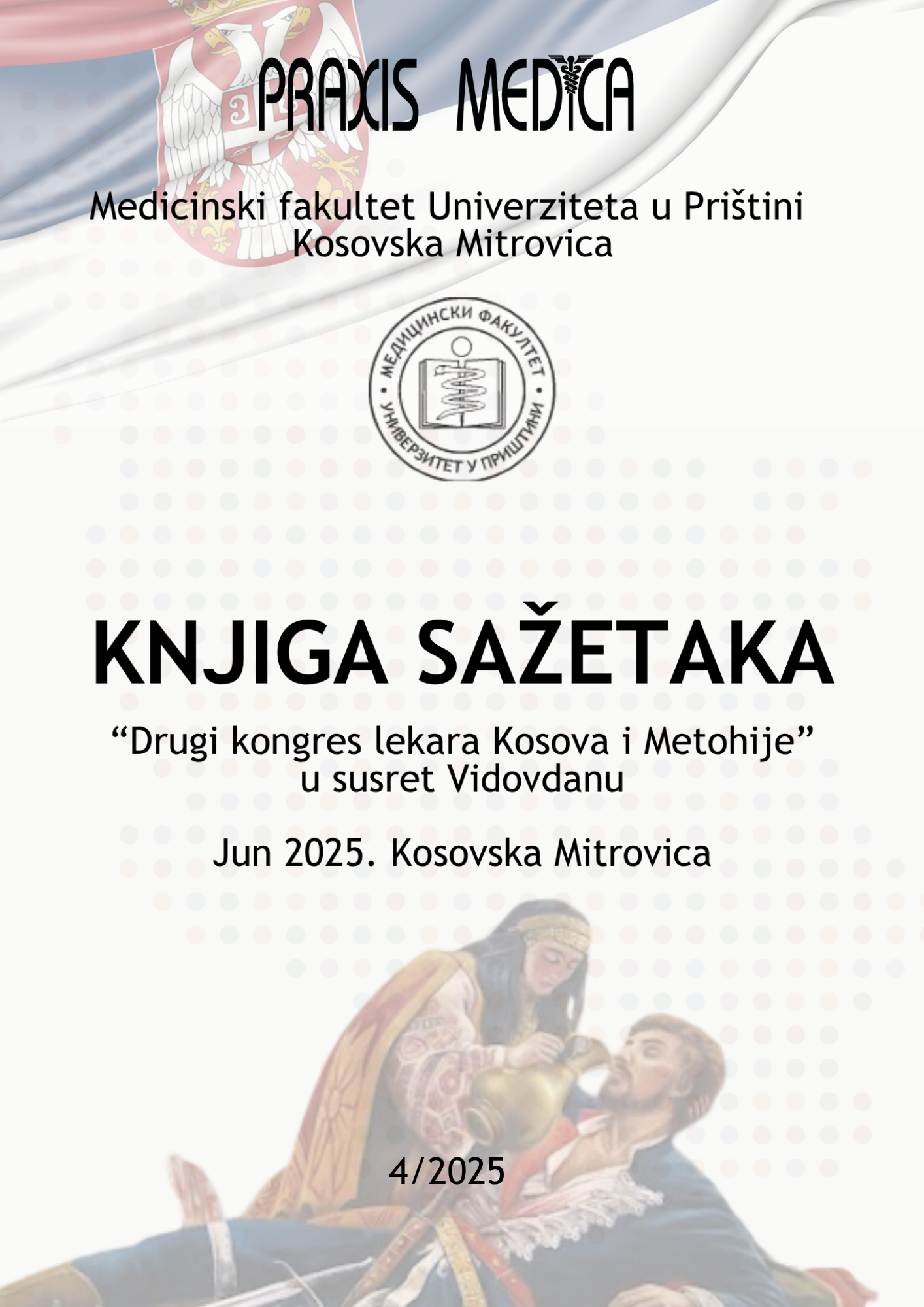
More articles from Volume 44, Issue 4, 2015
Effects of the toluene and methanol extract of Senna (Cassia angustifolia Vahl) on viability and proliferation HeLa cells
Mechanisms of injury of pedestrians in road traffic accidents
Significance of echotomography in the diagnostic algorithm for acute pyelonephritis and glomerulonephritis
Chemical risk factors responsible for the formation of wedge-shaped lesions
The concentration of adrenaline and noradrenaline in the serum of dogs under the influence of calcium channels blockers
Citations

0
The importance of forensic expertise in investigation of human rights violations
Abstract
Introduction: Medico-legal expertise and identification of victims during the war and post war conflicts mean for The Republic of Serbia the most important humanitarian, scientific and ethical problem. Aim: Forensic investigations on territory of Kosovo and Metohija are currently going on. Material and methods: In this paper we observe all cases of Serbs and other nonalbanians who were exhumed and identified during first five years after armed conflict (2000-2005.), in few mass graves and in many single grave sites. Results. In the mentioned period of time, 280 dead bodies were exhumed and forensic team did autopsies, 111 dead bodies were identified. Conclusion: Well done forensic expertise is a prerequisite to the successful identification, but also the criminal processing of cases in the category of war crimes, which all together give a distinctive character. The research, published and presented in this paper at the identified human corpses, through the general data, identified violations, determining the cause and manner of death, as well as its origin, with all the available documentation of circumstances that led to the death is also the scientific and historical evidence of the tragic fate of the missing persons and victims.
Keywords
References
Citation
Copyright

This work is licensed under a Creative Commons Attribution-NonCommercial-ShareAlike 4.0 International License.
Article metrics
The statements, opinions and data contained in the journal are solely those of the individual authors and contributors and not of the publisher and the editor(s). We stay neutral with regard to jurisdictional claims in published maps and institutional affiliations.






